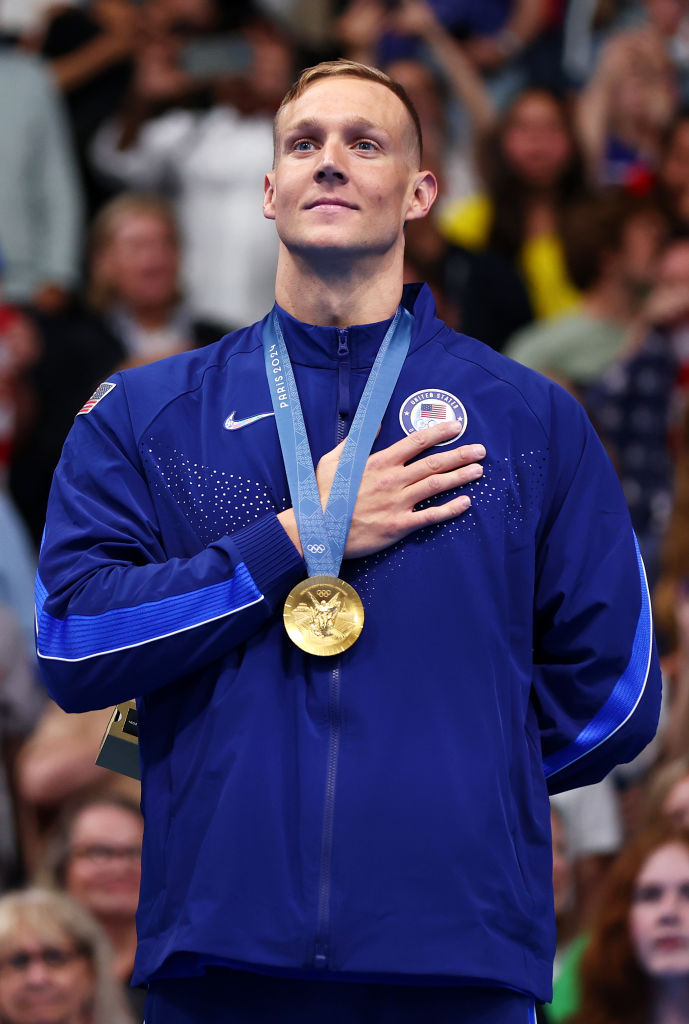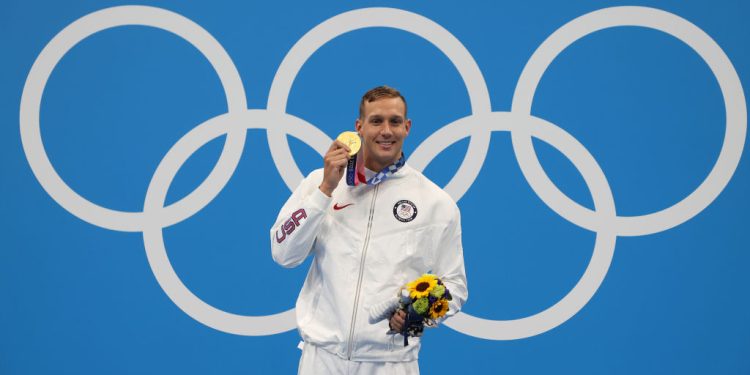NANTERRE, France (AP) — It was billed as one of the most anticipated races of the Paris Olympics.
Ariarne Titmus turned it into a blowout.
Titmus left Katie Ledecky in her wake on a raucous opening night at La Defense Arena, leading from start to finish to win the 400-meter freestyle Saturday.
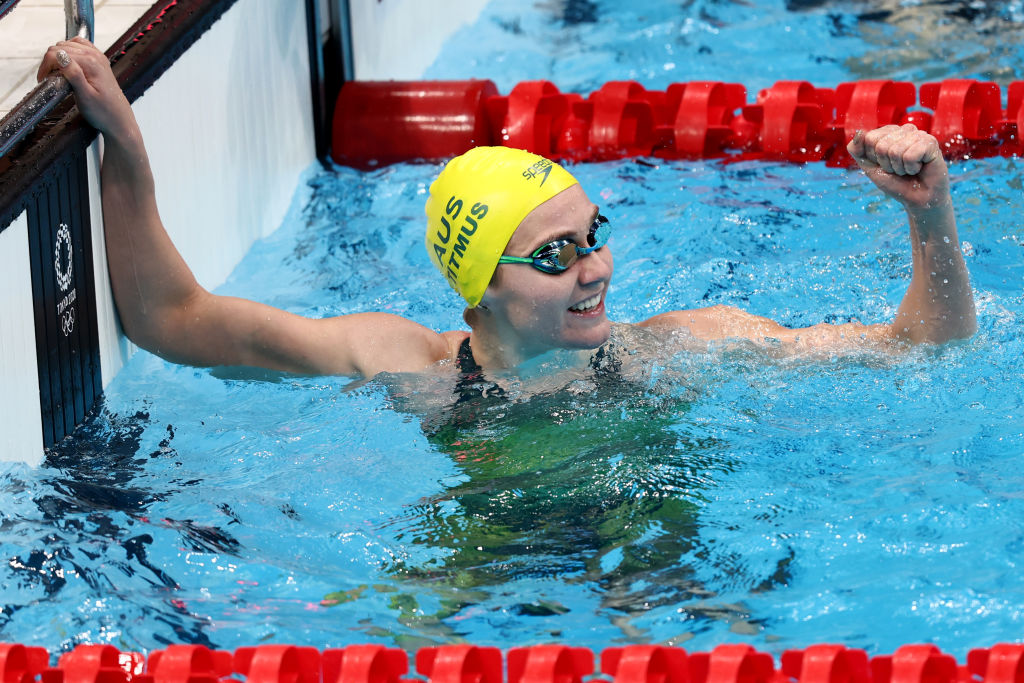
Titmus, the Australian star known as “Terminator,” handed Ledecky a second straight Olympic defeat in an event the American won at Rio de Janeiro in 2016.
With her fingernails painted Aussie yellow, Titmus strolled on deck with the confidence of a reigning champion, flashing a big smile and waving to the fans.
Titmus knew she was the swimmer to the beat, even with one of the greatest ever in the lane next to her.
Then, she went out and proved it.
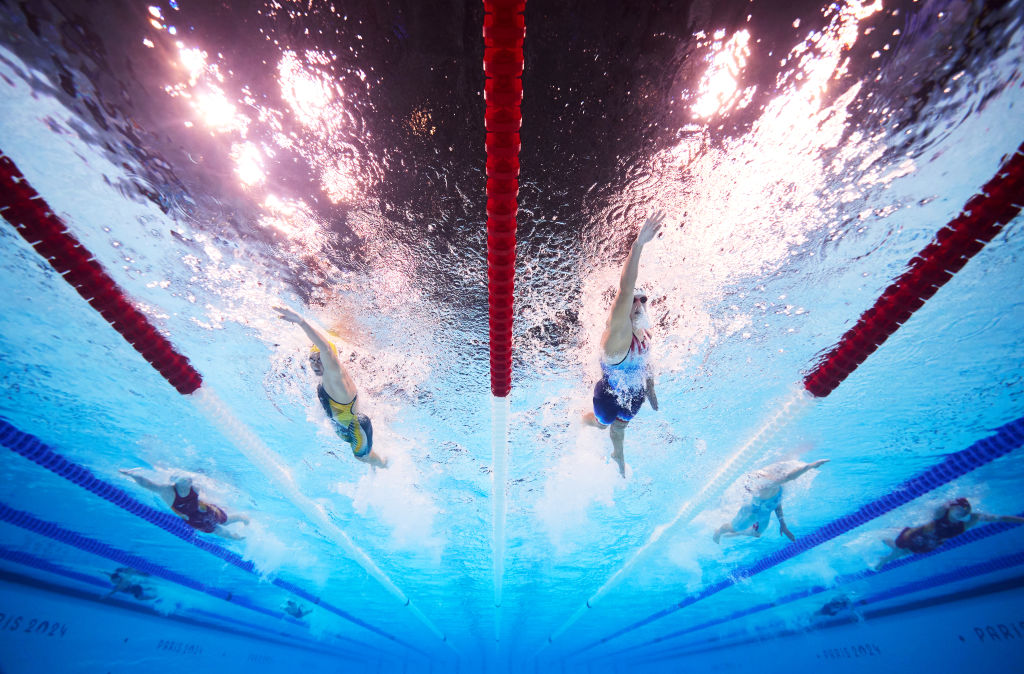
Titmus actually faced her stiffest challenge from Canadian 17-year-old phenom Summer McIntosh but won comfortably in 3 minutes, 57.49 seconds.
McIntosh claimed the silver in 3:58.37. Ledecky wasn’t even close, settling for bronze in 4:00.86.
“My legs are a bit tired, but I’m just relieved more than anything,” Titmus said. “I probably felt the expectation and pressure for this race more than anything in my life, to be honest, and I’m pretty good at handling the pressure of it.”
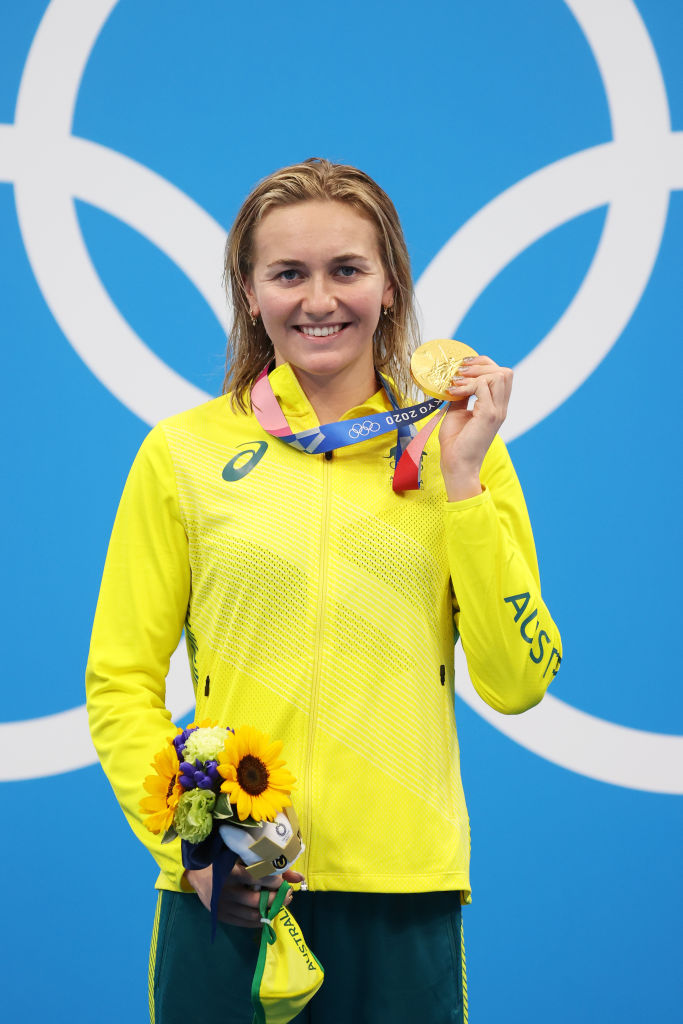
Ledecky, 27, remains at six individual gold medals in her brilliant career, still the most of any female swimmer in Olympic history.
But, she couldn’t find the speed to chase down Titmus.
“I just didn’t have it on the last 200 or 250 that way I wanted to,” Ledecky said. “I felt like my first 150 was pretty good. I went out with the field and felt like I was within striking distance. I just couldn’t kick in into that next gear that I would have wanted to finish it out.”
The Australian women also claimed their fourth straight gold medal in the women’s 4×100 freestyle relay to gain an early edge on their American rivals, but the U.S. capped the night on a high when Caeleb Dressel anchored the men’s team to victory in the 4×100 free relay.
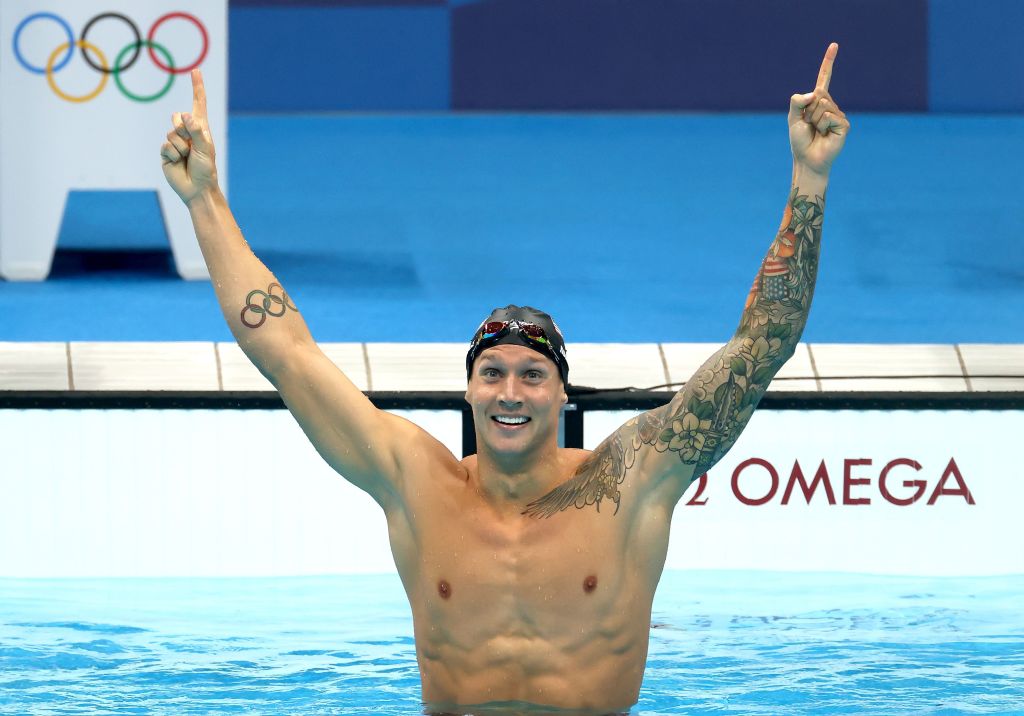
It was the eighth medal of Dressel’s career — all of them gold. He won five of those at the Tokyo Games, and he could be setting up for another glittering haul in the City of Lights.
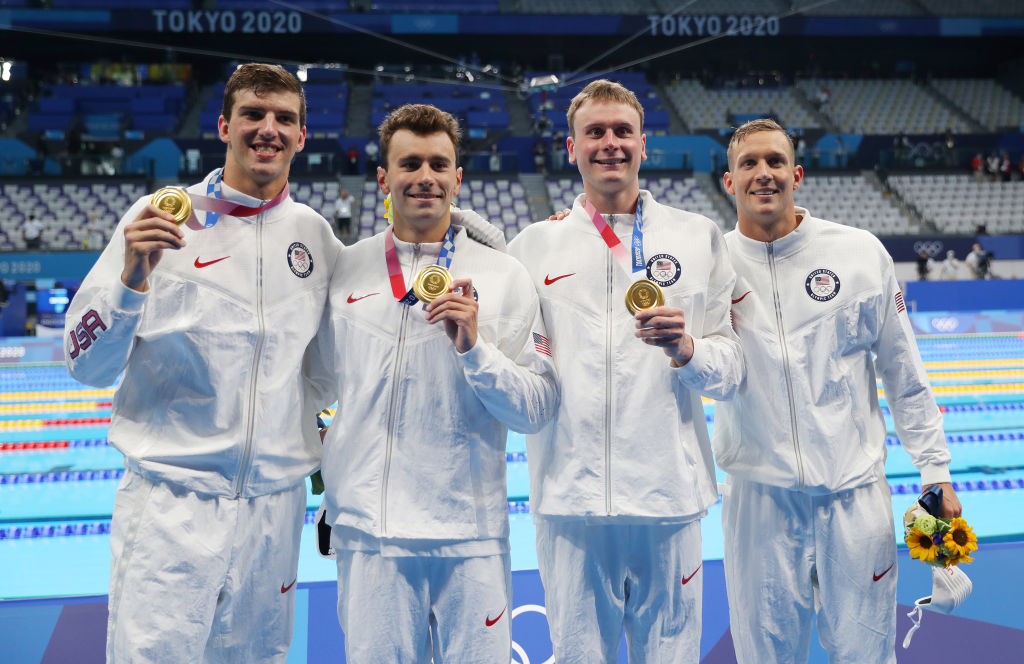
On deck after the medal ceremony, Dressel embraced his 5-month-old son, August, with tears streaming down his face. It was an especially satisfying moment for a generational swimmer who fell out of love with his sport after Tokyo, leading him to take an extended break.
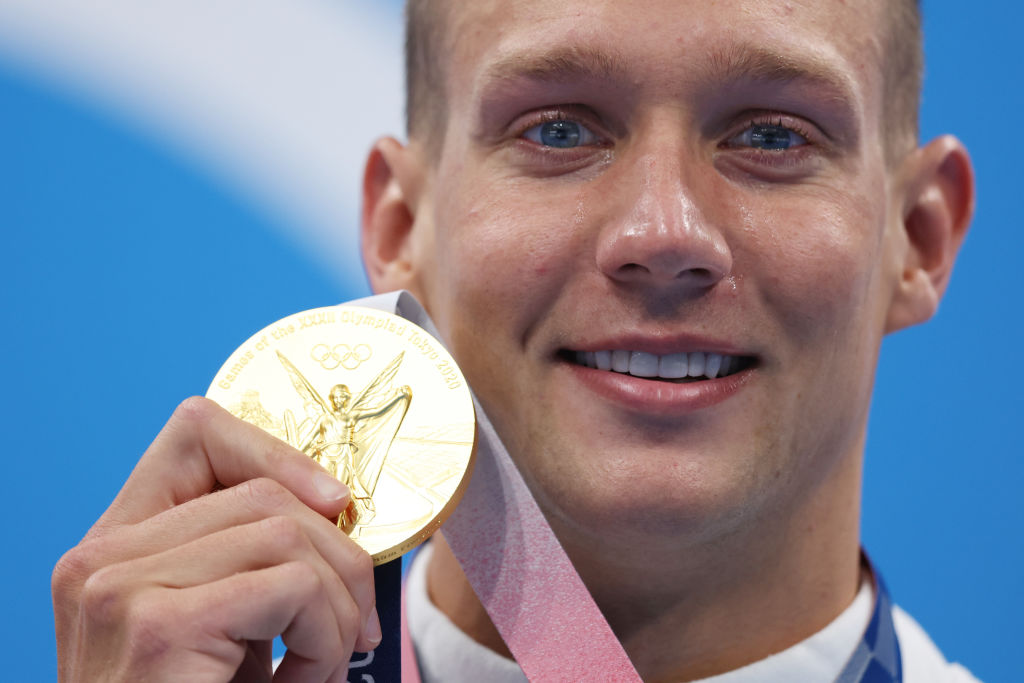
“It takes me back to my first gold,” the 27-year-old Dressel said. “It really doesn’t get old.”
Titmus. 23, now has three individual Olympic victories on her growing resume. She swept the 200 and 400 free in Tokyo and is favored to pull off the same double in Paris.
Ledecky isn’t done yet, either. She skipped a chance to face Titmus again in the 200 free, but the American is favored to take gold in both the 800 and 1,500.
And McIntosh? She’s going to be a familiar face in the coming week, as well. She’s the world-record holder in the 400 individual medley and had two races on opening night, returning to swim on Canada’s relay team that finished fourth.
“I’m just happy to get the result for myself and I feel so honored to be a part of the race and be alongside legends like Katie,” Titmus said. “I look up to her so much as an athlete and it’s certainly not a rivalry beyond the races. I really respect her as a person.”
Ledecky also shrugged off any talk of a rivalry.
“It’s a friendship, if anything,” Ledecky said. “We have a lot of respect for each other and we love competing against each other. It brings the best out of each of us and I’m sure, you know, pushes each of us in training knowing that we have each other to race at these kinds of meets.”
In the women’s 4×100 free relay, the Australian quartet of Mollie O’Callaghan, Shayna Jack, Emma McKeon and Meg Harris set an Olympic record of 3:28.92.
The Americans — Kate Douglass, Gretchen Walsh, Torri Huske and Simone Manuel — rallied to take silver in 3:30.20. They edged China by a tenth of a second.
It was the first swimming medal for China, a country that has been embroiled in controversy after it was revealed that nearly two dozen swimmers tested positive for a banned substance ahead of the Tokyo Olympics but weren’t sanctioned.
Two members of their bronze-winning team, Zhang Yufei and Yang Junxuan, were on that list.
In the men’s relay, the two youngsters who beat Dressel at the U.S. trials in the 100 freestyle, Jack Alexy and Chris Guiliano, started things off for the Americans. Then it was Hunter Armstrong turning the fastest leg of all to give Dressel a commanding lead to work with at the end.
He won going away in 3:09.28, pumping his fist and slapping hands with his teammates when he saw another No. 1 beside their names.
“Relays are a little more special to be honest,” Dressel said. “It’s really special standing on the podium with these guys watching the flag go up. I’m extremely proud of them. It made my job easy.”
Australia, anchored by Kyle Chalmers, took the silver in 3:10.35, while the bronze went to Italy in 3:10.70.
Germany’s Lukas Märtens won the first swimming gold of these Games, knocking off three world champions in the men’s 400 freestyle.
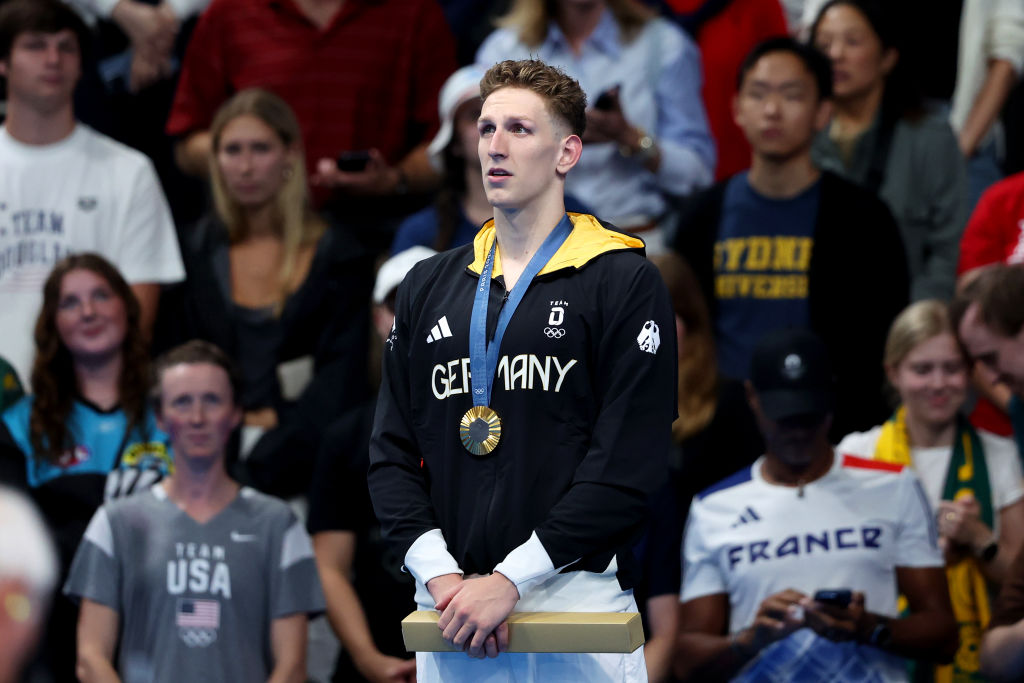
Märtens set a blistering pace through the first 300 meters and held on at the end to touch in 3:41.78. The silver went to Elijah Winnington of Australia, the 2022 world champ, in 3:42.21. Reigning world champion Kim Woo-win of South Korea settled for bronze in 3:42.50.
Ledecky posted the fastest qualifying time in the morning heats, but Titmus was clearly saving herself for the race that mattered most.
She went nearly 5 seconds faster in the evening, while Ledecky shaved less than 1 1/2 seconds off her morning time.
“I hope that we put on a good show tonight,” Titmus said, “and everyone enjoyed it.”
No complaints from the Terminator, that’s for sure.
